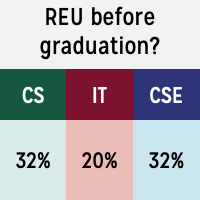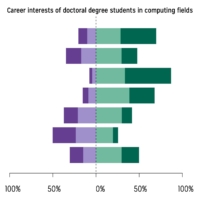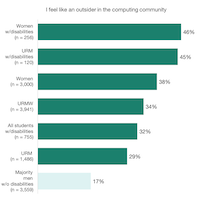
Students’ Level of Satisfaction with Computing Degree Programs
Data Buddies data show that access to academic resources, quality of the technical content of courses, and availability of professors outside of class are the top three characteristics of a program that are most strongly associated with students’ overall satisfaction with computing degree programs.














